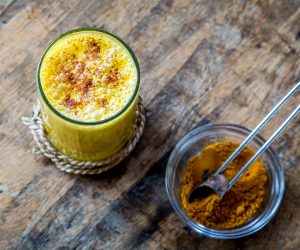
Vitamin C May Shorten Ventilation in Critically Ill Patients
University of Helsinki via EurekAlert – Vitamin C administration shortened the duration of mechanical ventilation in critical care patients, but the effect depended on the severity of illness.
In five controlled trials including 471 patients requiring ventilation for over 10 hours, vitamin C shortened ventilation time on average by 25% according to a meta-analysis published in Journal of Intensive Care.
Vitamin C has numerous biochemical effects.
It can influence the cardiovascular system through its involvement in the synthesis of norepinephrine and vasopressin, and energy metabolism through its participation in the synthesis of carnitine.
In randomized trials, vitamin C has lowered blood pressure, decreased the incidence of atrial fibrillation and decreased bronchoconstriction.
A previous meta-analysis of 12 controlled trials found that vitamin C reduced ICU stay on average by 8%.
Critical care patients often have very low vitamin C plasma levels.
In healthy people, 0.1 grams per day of vitamin C is usually sufficient to maintain a normal plasma level.
However, much higher doses, in the order of grams per day, are needed for critically ill patients to increase their plasma vitamin C levels to within the normal range.
Therefore, high vitamin C doses may be needed to compensate for the increased metabolism in critically ill patients.
Harri Hemilä from the University of Helsinki, Finland, and Elizabeth Chalker from the University of Sydney, Australia, carried out a systematic review of vitamin C for mechanically ventilated critical care patients.
They identified 9 relevant controlled trials, and 8 of them were included in the meta-analysis.
On average, vitamin C administration shortened ventilation time by 14%, but the effect of vitamin C depended on the duration of ventilation.
Patients who are more seriously ill require longer ventilation than those who are not as sick.
Therefore, Hemilä and Chalker hypothesized that the effect of vitamin C might be greater in trials with sicker patients who need longer ventilation.
Vitamin C had no effect when ventilation lasted for 10 hours or less.
However, in 5 trials including 471 patients who required ventilation for over 10 hours, dosage of 1 to 6 g/day of vitamin C shortened ventilation time on average by 25%.
“Vitamin C is a safe, low-cost essential nutrient. Given the strong evidence of benefit for more severely ill critical care patients along with the evidence of very low vitamin C levels in such patients, ICU patients may benefit from the administration of vitamin C. Further studies are needed to determine optimal protocols for its administration. Future trials should directly compare different dosage levels,” says Dr. Hemilä.
To read the original article click here.






